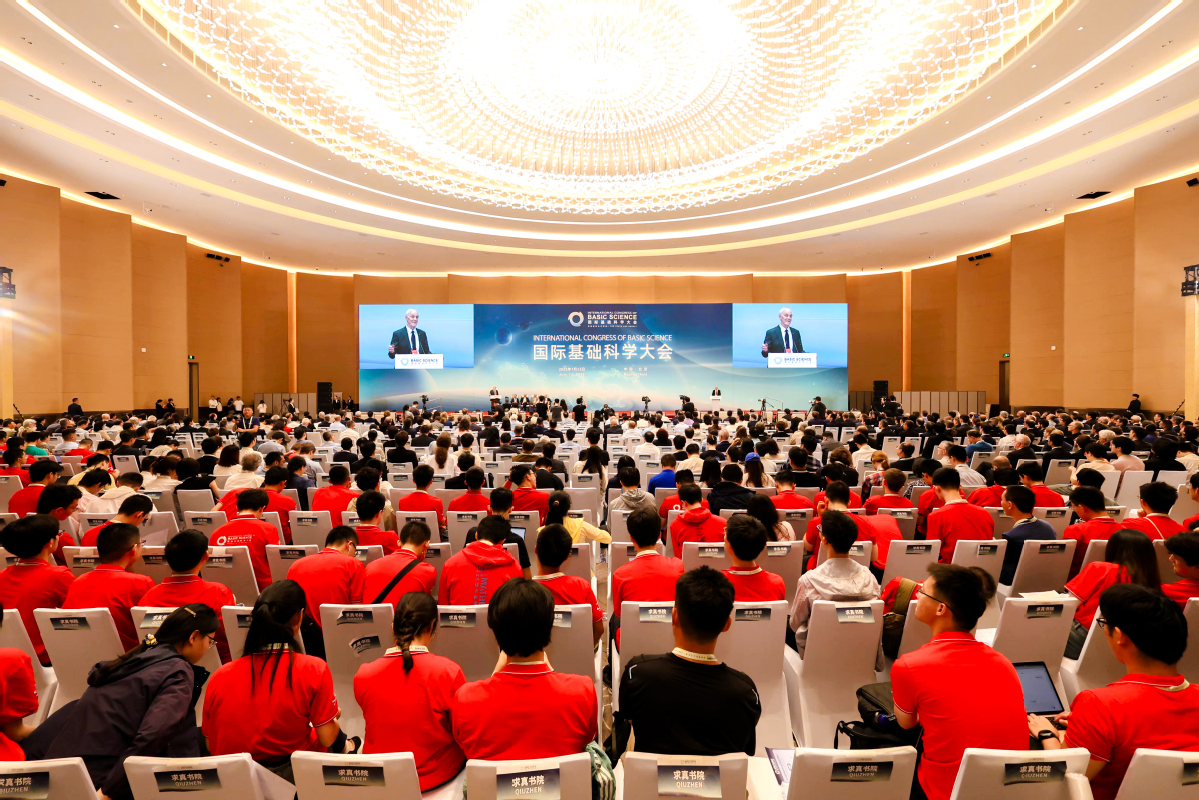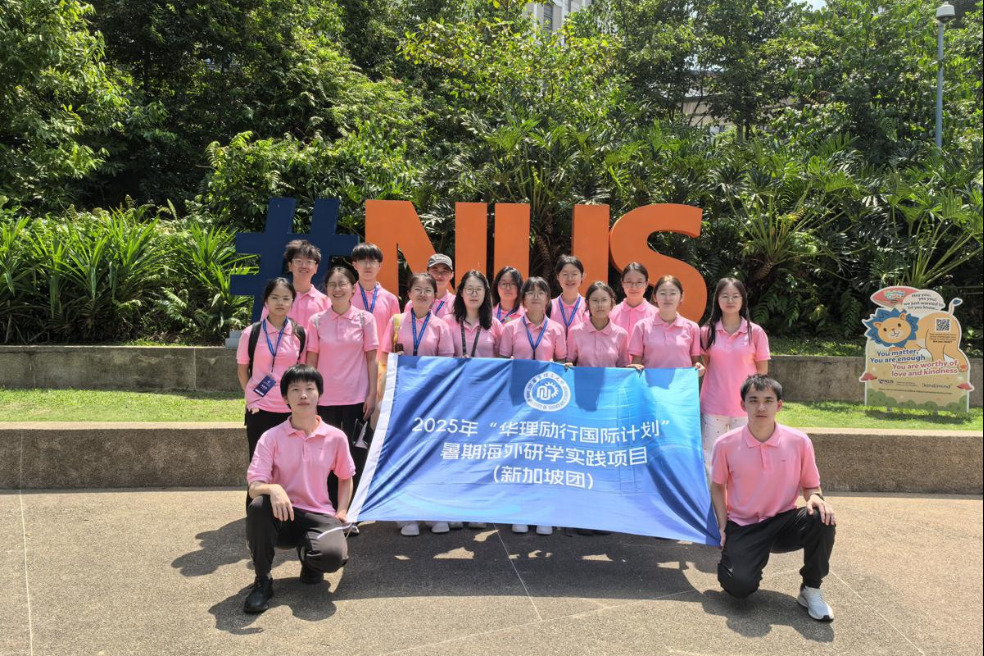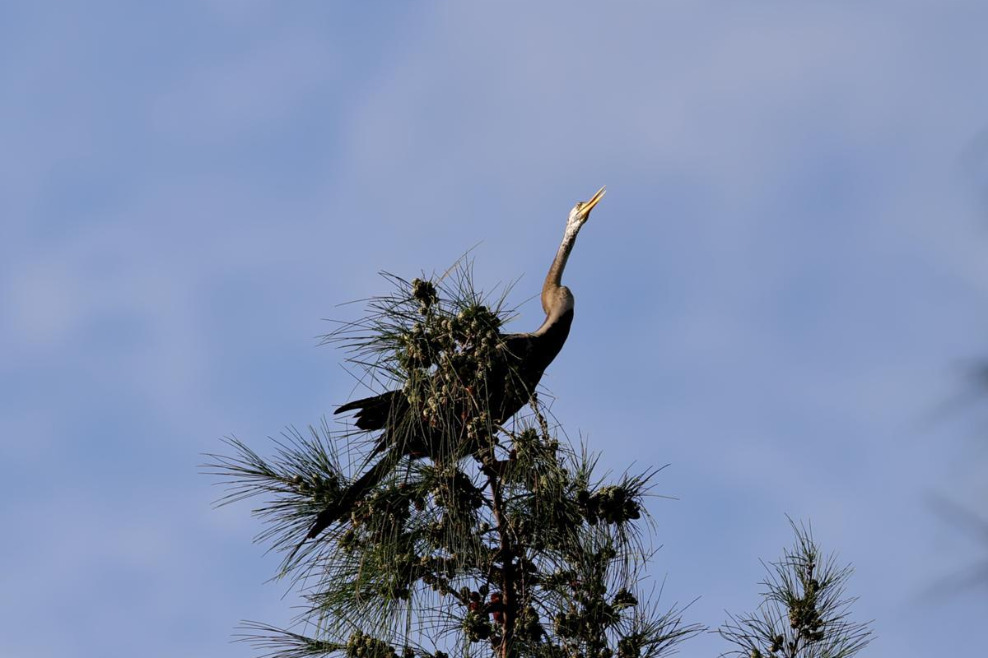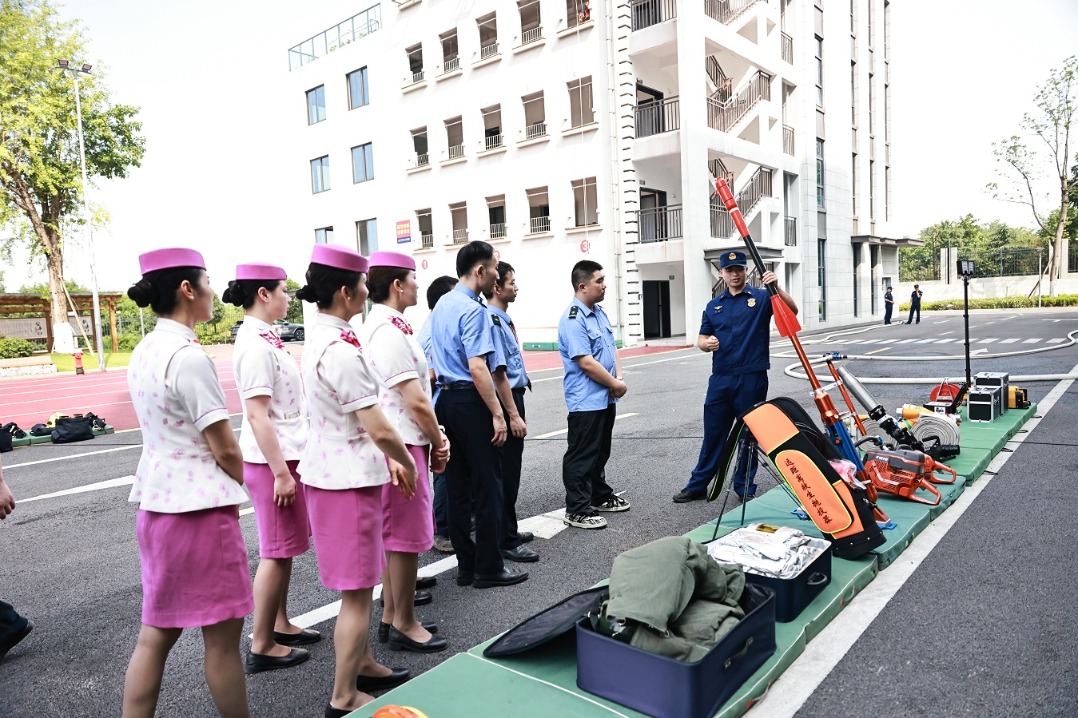2025 International Congress of Basic Science kicks off in Beijing


The progress of fundamental science is not only key to technological innovation but also a core engine for the evolution of human civilization. Today, international cooperation and mutual trust in science and technology are more vital than ever before, said Shing-Tung Yau, president of the International Congress of Basic Science, Fields Medalist and chair professor at Tsinghua University.
He made the remarks during a speech at the opening ceremony of the 2025 International Congress of Basic Science (ICBS 2025) in Beijing on Sunday. As a leading global academic event initiated by Shing-Tung Yau in 2023, ICBS is held annually with the theme "Advancing Science for Humanity".
Four Fields Medalists, three Nobel laureates, and two Turing Award winners attended the conference this year. The Congress also welcomed prestigious recipients of the Shaw Prize, Wolf Prize, and Dirac Medal, along with more than 80 members of Chinese and international science academies, presidents, and delegates of mathematical societies from over 10 countries, and nearly 1,000 experts, scholars, and students from research institutions, universities worldwide — together discussing the development of basic sciences.
Six preeminent scientists — Samuel C.C. Ting, Steven Chu, David Gross, Robert Tarjan, Shigefumi Mori, and George Lusztig — were honored with the 2025 Basic Science Lifetime Award, the highest distinction in fundamental science, honoring their enduring impact on the field.
89-year-old Nobel laureate Samuel C.C. Ting shared his thoughts with attendees as he was presented with the Basic Science Lifetime Award winner. "Experiments are of fundamental importance to the advancement of knowledge. The advancement of physics depends on the close collaboration between theorists and experimentalists." Today, Ting still leads a team of scientists from 16 countries aboard the International Space Station, probing the theories of cosmic rays. In a heartfelt conclusion to his acceptance speech, Ting gave special recognition to his Chinese collaborators, acknowledging their invaluable contributions to his achievement.
Another Basic Science Lifetime Award laureate Shigefumi Mori, who attended the ICBS for the first time, expressed admiration for the tremendous development of Chinese mathematics. He noted with particular delight that among the ICBS speakers were many renowned colleagues and friends, emphasizing the profound pleasure of reuniting with these distinguished scientists. Fields Medalist Caucher Birkar encouraged young researchers to actively participate in academic activities and seize the rare opportunity for in-depth exchanges with world-class scholars.
Held from July 13 to 25, the ICBS is not only an academic exchange event, but also provides an opportunity for young scholars, students and science and technology enthusiasts from all over the world to share ideas and experiences. Over the next two weeks, nearly 1,000 scholars and students — including over 400 world-leading scientists — will gather at the Beijing Institute of Mathematical Sciences and Applications (BIMSA) in Huairou District. They will engage in academic discourse across three foundational domains: mathematics, physics, and information science and engineering.
- 2025 International Congress of Basic Science kicks off in Beijing
- Scorching week forecast for various parts of country
- Young filmmakers' project paints multidimensional portrait of China
- Rare 1938 Guangzhou bombing photos to debut in August
- Power station solves renewable energy intermittency
- China appoints senior official for Hong Kong, Macao affairs





































